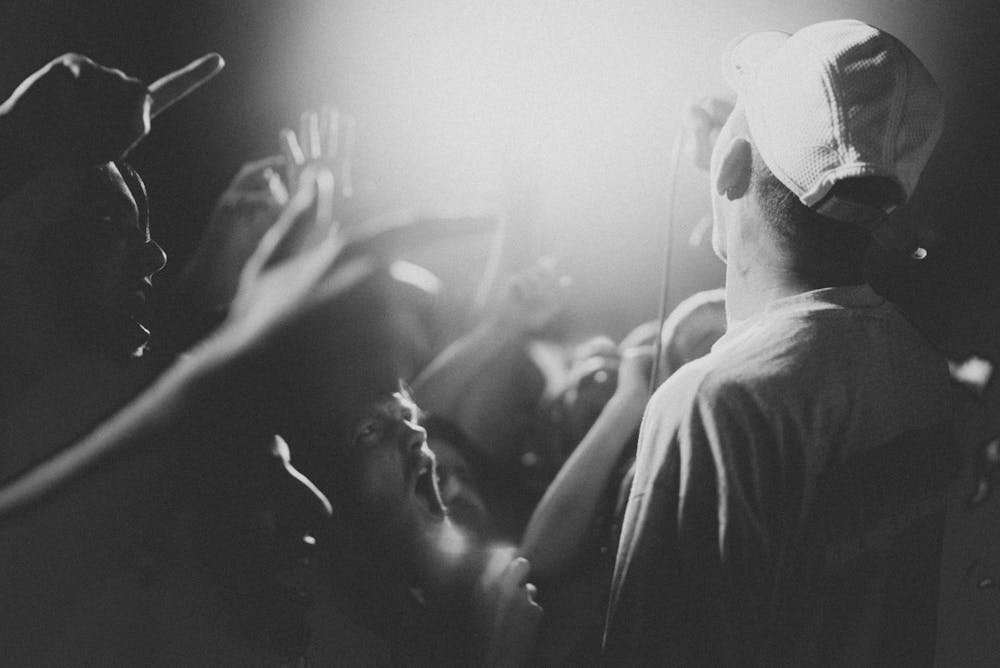It is easy to write polemics against the fan culture around contemporary musicians while disregarding the basic need it satisfies. We all desire to ascribe to some collective identity — for evidence, see Notre Dame Stadium every fall Saturday. And there’s nothing wrong with that, this want is instinctual and like all instincts helps with basic survival. A cohesive, united group is more likely to thrive than one person alone, so an inclination to form these groups and to do so without an excess amount of self-criticism is natural. The danger is when individual identity and the collective identity begin to bleed together, and one does not notice it. In the case of music fan culture, the threat is when the fan begins to assert their own ownership over the object artist of their admiration, turning the artist’s work into, chiefly, their own cultural capital.
Recently, fans have seemed to exert ownership over concert experiences, whether by throwing random objects at artists or by flaunting concert attendance like a possession — a temporal commodity purchased for, likely, an inordinate sum. Additionally, social media concert videos often function less like personal records of a magical experience and more like advertising one’s own coolness, once again turning the moment into a possession. All these behaviors turn the concert not into a communal celebration of shared musical interest, but as an extension of the fan themself.
This claim of ownership of an artist’s material continues in the more blatantly toxic fan behaviors, such as harassing commentary online or, in the case of blockbuster franchises, hit pieces against the corporations and artists innovating upon the franchise in new artworks. By harassing commentary, I refer not to opponents of an artist encroaching on their privacy or threatening them through the Internet, but to fans weaponizing their fandom against others, such as randomly assailing comparable artists, which happens quite frequently with pop acts. While egocentric concert posts promote the fan’s taste and experiential wealth, these competitions comparatively boost the fan, in their mind, by raising them through their advocacy of a “superior” artist. There are also the fans who decide they would be better at managing an artist’s creative output than the artists themselves, which makes one wonder what artistic dreams of their own these commentators are stifling. In the cases of these micromanaging fans, it would seem they would be better served creating their own outlets for their ideas, even if all they gain is an appreciation for the difficulty of the artistic process.
This point about personal suppression extends somewhat to the nadir of fan culture, the franchise trolls, who may have been fans of some previous iteration of a series but surely do not qualify as current fans at all. They often turn these franchises, regardless of the artistic ambitions inherent in the series themselves, into battlegrounds for attacks on diversity and personal identity. This is the basest variation of the alchemy of artist work into cultural capital. It seizes upon politically beige and often artistically unchallenging works and exerts a sense of ownership over them to proclaim an agenda restricting the visible spectrum of human experience in mainstream society. Given that art is chiefly the expression of the human condition in some fashion, it is hard to imagine any operation of fan culture that is more anti-art than this: art must, as an expression of our condition, showcase our inherent, potentially divisive plurality.
But is fandom ever pure in the first place? Aren’t we always taking some personal ownership of our interests and assuming a right to be satisfied by them? I believe we are always overlapping our personal identity with our interests or our outside identity groups and that vigilance is simply a requirement. We are not solely defined by our fandom or our identification with anything beyond us (at least, in this material reality), just as we cannot principally define anything besides ourselves. In the constant push and pull we experience between our need for collective and individual identity, fandom and personal prerogative, we must watch when our identity begins to collapse into something else and we mark ourselves the governors of another or their work. Because if we are not careful, we will trespass on someone else’s individual rights — or be susceptible to those who would override our individuality for something far more nefarious than subtweets or vanity photos.










